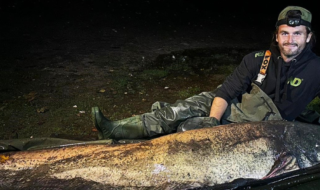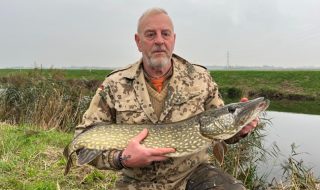Significant drop in Atlantic salmon returning to English river confirms 2021 as a poor year for this iconic species – long-term monitoring project’s report shows that the number of wild adult Atlantic salmon returning to the River Frome in southern England in 2021 was down almost 20% on its 10-year average.
This drop echoes reports from Scotland and Norway where the 2021 annual salmon catches were the lowest on record – a clear message that 2021 was a very poor year for returning Atlantic salmon. The widespread reporting of declining adult salmon returns further highlights the growing need for targeted action to protect this iconic species.
Juvenile Atlantic salmon smolts migrating to sea from the River Frome in 2021 were also 30% below the 10-average, so expectations for adult returns from this smolt cohort, as grilse in 2022 and multi-sea-winter salmon in 2023, are low.
This week the Game & Wildlife Conservation Trust (GWCT) published its 2021 Fisheries Research Review. Based at the Salmon & Trout Research Centre at East Stoke on the River Frome in Dorset, the GWCT Fisheries Team is responsible for one of the longest running salmon monitoring projects in the UK.
The River Frome is a salmon index river and provides data on marine survival rates for Atlantic salmon to the International Council for the Exploration of the Sea (ICES). ICES uses River Frome data, along with other salmon data from the North Atlantic, to provide scientific advice on high seas exploitation.
There are, however, some more positive signs from recent monitoring, as Rasmus Lauridsen (pictured), head of GWCT Fisheries Research, explains: “Although we had a disappointing adult salmon run in 2021, we encountered good numbers of salmon parr in our annual parr tagging campaign in September, indicating excellent recruitment from the salmon which reproduced in 2020. So we are expecting a strong run of out-migrating salmon smolts in 2022.”
As a founding member of the Missing Salmon Alliance (MSA) the GWCT Fisheries Research Review also reports on the evolution of the MSA’s Likely Suspects Framework. The framework is developing novel ways to predict future salmon marine survival using indicators of ecosystem health and life cycle knowledge to improve decision making tools for salmon management.
The review can be downloaded at:
https://www.gwct.org.uk/media/1324945/fisheries-research-report-2021.pdf






